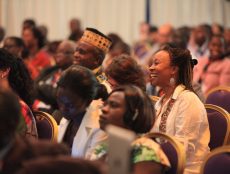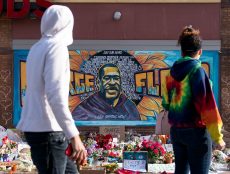
Articles
Higher Education
UC Berkeley Offers Online Media Training
By Cait Etherington
June 07, 2019
Most academics never become famous, but from time to time, they are asked to share their perspectives and research with the general public. The problem is that even people, even those with years of experience delivering large lectures and conference talks, don’t know how to engage with the media, especially in the context of radio and television interviews. To ensure UC Berkeley faculty don’t falter when called upon to share their ideas with the broader public, the university was already offering a media training course. The demand for the course was so high, the university has now put their Media Training for Academics course online.
Media Training for Academics
Berkeley’s media training course for academics isn’t new. Berkeley was already offering the six-hour course on how to work effectively in various mediums such as print and television, but previously, the course was only by invitation. With demand rising, the university started to look for a way to expand course access to all faculty, students, and researchers. Putting the course online was the best option.
Now, everyone in the Berkeley community can enroll in the free, self-paced course. The course helps prepare members of the Berkeley community for radio and television media interviews but also discusses how to write op-ed for local or national news outlets. There are four modules in total. Among other topics covered, faculty, students, and researchers can explore how to identify and develop effective media messages; how to respond to reporters; how to prep for on-camera interviews; how to write and pitch op-eds, blogs or social media posts; and how to set up for professional video interviews.
As Roxanne Makasdjian, Berkeley’s director of broadcast communications, recently told Berkeley News, “There is so much research that sits in journals and never gets communicated.” Makasdijan adds that this is a significant part of her office’s public mission. Above all else, they are committed to helping scholars translate their research so it can be shared with the general public. Without this skill, after all, much of the research produced carries little value beyond the walls of the university.
Both Faculty and the Media Welcome the Course
UC Berkeley’s Quigkai Kong, an earthquake researcher, previously took the university’s media course in person. He was grateful for the experience. “I was trained as a researcher, so there wasn’t a lot of experience talking with the media,” Kong told Berkeley News. Kong further noted that training helped him hone his ability to craft and deliver a message, overcome his fear of speaking to the media, and learn to share his research with non-expert audiences.
It’s not just UC Berkeley faculty who are excited about the course. One of the online course videos features an interview with Lois Kazakoff, the San Francisco Chronicle‘s Opinion Page Editor. Kazakoff’s message to academics is clear: “We’re desperate for you. Our democracy depends on you writing for us.” But Kazakoff also adds that the world doesn’t really need researchers who can only communicate their ideas to other scientists. The world needs researchers who are adept at translating their ideas into language that non-experts can also understand.
With UC Berkeley’s media training for academics now online and available to all members of the Berkeley community, the university hopes to prepare even more scholars to translate their research for the general public.
Photo by Sam McGhee on Unsplash.









No Comments